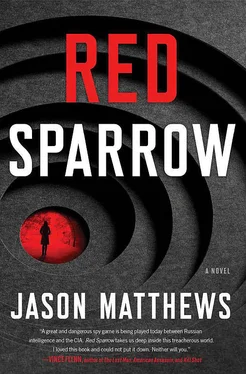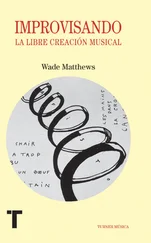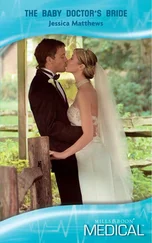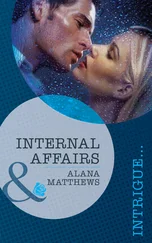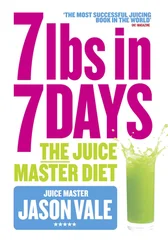MARBLE looked straight ahead, noting the city glow of Narva, the loom of the castle keep, the wink of a star in the western sky, the headlights and silhouettes of the men at the far end of the bridge. When lights on both ends of the bridge flashed again, he began walking. He heard Dominika’s footsteps fading behind him. His body felt light, the pains were familiar, but the hollowness in his chest was gone. His head was clear and he concentrated on not walking too fast, he would show them to the last how a professional finishes. As he came nearer, the silhouettes turned into faces, familiar faces. It was more important to see his friends than it was to actually be free. Benford. Nathaniel. A spy swap. He almost laughed.
The 9x39mm round from Lyudmila’s suppressed rifle passed through the left side of MARBLE’s neck, severing his carotid artery before exiting his right pectoral muscle below the armpit. Tsukanova, intending a head shot, had held a touch low, and the cold night air had affected the subsonic SP-5 round. She was up and walking her egress route along the south fortress wall before MARBLE’s legs buckled. The Russians on their side of the bridge did not know anything had happened.
Benford caught him, but MARBLE’s dead weight slipped through his arms and the old man collapsed to the wet asphalt. Nate sat on the roadway and cradled MARBLE’s head against his thigh, but the old spy was still, they had flipped a switch on him and he was gone, eyes closed, face strangely composed. Benford looked at his hands, red with Korchnoi’s blood.
The KaPo troopers unslung their Galils and brought them up, but Gable screamed, “Stop!” and waved them to stand down. Across the bridge, Dominika turned briefly—she had heard Gable’s bellow—but she was swallowed up in the searchlights’ glare. She registered the dark knot of figures around the black lump on the ground, and she knew, instinctively, what had happened.
She screamed, No! once in her head, then willed herself to close down, to compose her face, relax her shoulders. She was hustled into a waiting vehicle, a heated Mercedes, luxuriously warm, which immediately sped off down the highway. The car rocked around the curves, and she contained her horror, replaying images of Korchnoi. She choked down her venomous rage as a yellow-draped Leningrad colonel filled the inside of the car with cigarette smoke.
Benford looked down at MARBLE, paralyzed, unable to move, unable to think. Nate’s head was bowed, and his hands shook as he continued cradling MARBLE’s head in his lap. This was violence too cruel; they were speechless, insensate with the finality, the irretrievability of MARBLE’s lost life. They were shaken by the despot’s towering treachery, by the enormity of the ruthless act.
All except Gable. He quickly stepped back out into the roadway and raised his binoculars. A jumble of silhouettes on the Russian side was moving around; the taillights of a luxury sedan receded into the night. Gable could not tell whether Dominika had seen what had happened, but he hoped she had, Please God she knows what happened.
The fog swirled around them, wetting their hair, touching MARBLE’s placid face. The old man’s sodden overcoat lay forgotten at the middle of the bridge.
In counting the number of people who in one way or another materially assisted me in writing this book, I was surprised to see how many there were. I owe them all my thanks.
I must begin with my literary agent, the incomparable Sloan Harris of International Creative Management, who, in the early days of writing, acted as a sustaining guide and mentor, and later, as an unyielding advocate of the manuscript. I am certain that in another life Sloan was a farsighted Venetian doge or a conquering Byzantine sultan. Without him the book would not have been born.
Many thanks to the rest of the ICM team, including Kristyn Keene, Shira Schindel, and Heather Karpas, all of whom embody patience as a virtue.
I owe another debt of gratitude to my editor at Scribner, the legendary Colin Harrison, who simultaneously edited the manuscript with the acuity of a mapmaker while teaching me how to write good. His dedication to the science and art of writing is boundless, and he improved the final product beyond measure. Without him the book would not have been completed.
Thanks too to all the people at Scribner and Simon & Schuster, including Carolyn Reidy, Susan Moldow, Nan Graham, Roz Lippel, Brian Belfiglio, Katie Monaghan, Tal Goretsky, Jason Heuer, Benjamin Holmes, Emily Remes, and Dave Cole for their support, encouragement, and the warm welcome into the S&S family. Special thanks go to Kelsey Smith for all her hard work. All these people are collectively responsible for creating the book, though I hasten to add that any error of fact or language or science is mine.
I must acknowledge a number of friends who helped me begin the effort, some of whom cannot be named. They know who they are: the discerning Dick K. of Beverly Hills; the eclectic Mike G. at USC; and superattorney Fred Richman, also of Beverly Hills.
Of course the book would not have come to pass without a career in the CIA, a life I shared with hundreds of colleagues beginning with my career trainee class, and including lifelong friends made in Langley and in all the foreign postings over thirty-three years. A number of them are still relatively young. I salute all of them.
As a young CIA officer I benefitted from the (at times) not-so-gentle guidance and patronage of a number of senior officers such as Clair George, Paul Redmond, Burton Gerber, Terry Ward, and Mike Burns, operators of towering talent and unshakable patriotism. In those days they were referred to as “barons” in the Directorate of Operations. And I sat at the knee of the laconic Jay Harris, a nuclear-physicist-turned-case-officer; together we reinvented internal operations in Castro’s Cuba.
My brother and sister-in-law William and Sharon Matthews made critically important suggestions, and my daughters, Alexandra and Sophia, more than once reminded the author that eight-track tape decks are no longer sold at Woolworth’s.
Finally I thank my wife, Suzanne, herself a thirty-four-year veteran of the CIA, for sharing an endlessly varied life with me, for the late nights, and the surveillance nights, and the evacuation nights, and for raising two sublime daughters, and for her patience while I wrote.

© DAVID MOORE
JASON MATTHEWSis a retired officer of the CIA’s former Operations Directorate, now the National Clandestine Service. Over a thirty-three-year career he served in multiple overseas locations and engaged in clandestine collection of national security intelligence, specializing in denied-area operations. Matthews conducted recruitment operations against Soviet–East European, East Asian, Middle Eastern, and Caribbean targets and, as Chief in various CIA Stations, managed covert-action projects against the weapons-of-mass-destruction programs of the world’s rogue states and collaborated with foreign liaison partners in counterterrorism operations. He lives in Southern California.
MEET THE AUTHORS, WATCH VIDEOS AND MORE AT
SimonandSchuster.com
Doug Stanton on Red Sparrow by Jason Matthews
Doug Stanton is a teacher, lecturer, and author of the New York Times bestsellers In Harm’s Way and Horse Soldiers . His writing has appeared in Esquire, The New York Times, The New York Times Book Review, TIME, the Washington Post, Men’s Journal, Outside, The Daily Beast/Newsweek. Stanton has appeared multiple times on the Today Show, CNN, Imus In The Morning, Discovery, A&E, Fox News, NPR, MSNBC’s Morning Joe, and NBC Nightly News. Horse Soldiers is in development as a movie by Jerry Bruckheimer Films. Stanton reads and lectures nationally to business, civic groups, libraries, writing & book clubs, and universities, including the United States Air Force Academy, University of Michigan, and The Union League Club. Stanton attended Interlochen Arts Academy, Hampshire College, and received an MFA from the Writers’ Workshop at the University of Iowa, where he graduated with coursework in both fiction and poetry workshops. He founded the National Writers Series, a book festival; and the Front Street Writers Studio, a free writing workshop for public high school students.
Читать дальше
